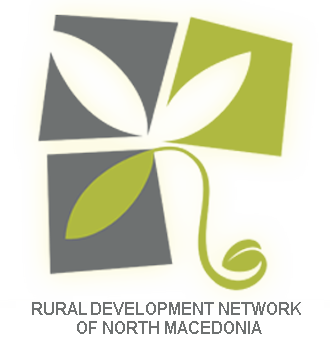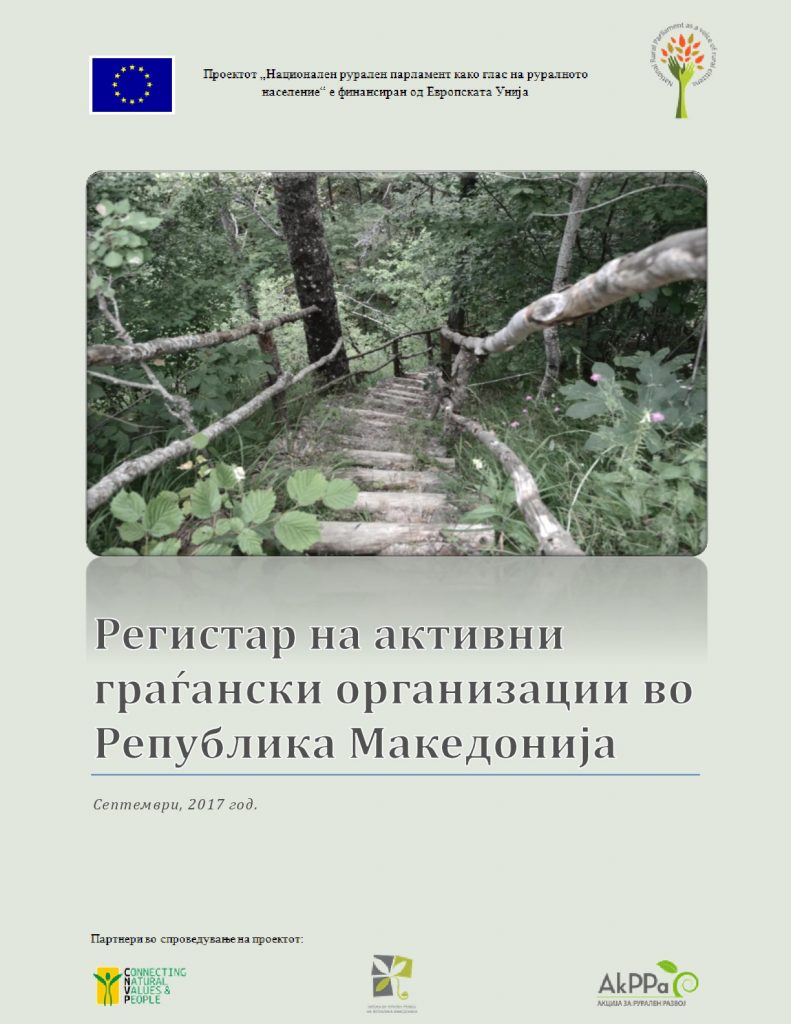The project ‘National Rural Parliament as a Voice of Rural Citizens’, funded by the European Union, carried out field research in 8 planning regions in Macedonia in August and September, in order to identify the major civil organizations working in the field of rural development. As a result a Registry of Active Civil Rural Development Organizations was produced which will allow for facilitated mobilization of civil organizations in solving certain issues/topics to be discussed in society in general, as well as for strengthening mutual communication and exchange of information. This Registry will be used by national institutions as well, to map, contact and engage relevant civil institutions in the processes of decision making or the awareness raising campaigns. The Registry is available on the following link.
The Registry, as an open source of information available to all, will be updated regularly with data on new civil organizations actively working in the field of rural development. Therefore if you are such an organization which has not yet been registered, the project partners would like to encourage you to fill in the questionnaire (link) and send it to zg.akrra@yahoo.com thereby contributing to improving and enlarging the database.
The main goal of decentralization is to include people in the process of decision making. It would allow to civil organizations to participate in finding solutions on daily problems in their towns and villages. Local and national institutions in the country attempted to involve stakeholders in the process of drafting strategies on agriculture and rural development. The main focus was placed on information and consultation, by means of seminars and debates. In addition to setting up new grounds for further moving towards greater participation, a large number of rural civil organizations failed to link with the process of policy making. Therefore the project National Rural Parliament as a Voice of Rural Citizens is working on advocacy, networking and building capacities to allow to as many stakeholders as possible to give their voice and increase their presence in the processes of community development. Mobilization of all relevant actors who impact the farming and rural sector directly or indirectly is particularly important for setting up an effective and well-coordinated response of state institutions while creating proper agricultural policy, adjusting the legal regulations and reforms in public institutions.

